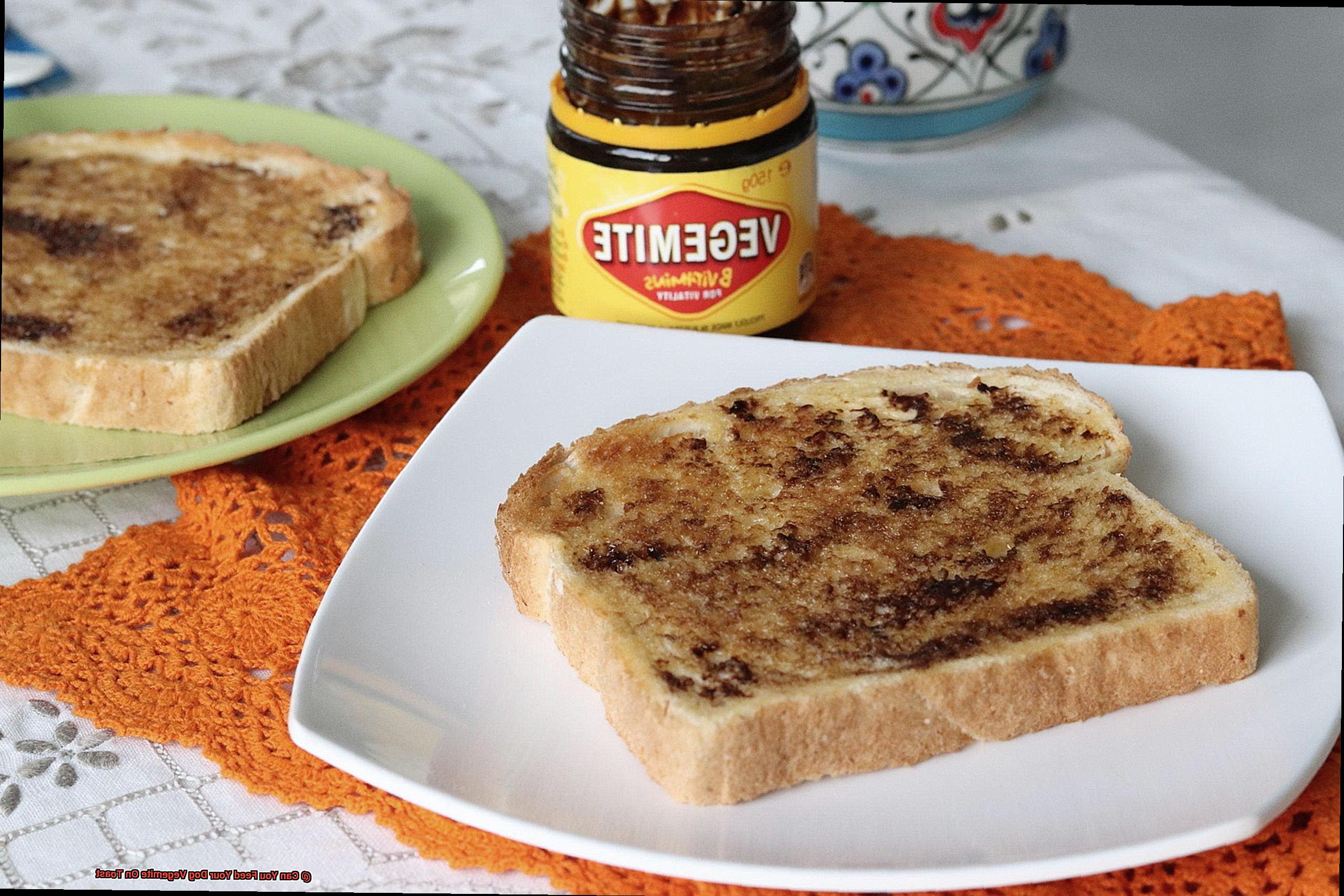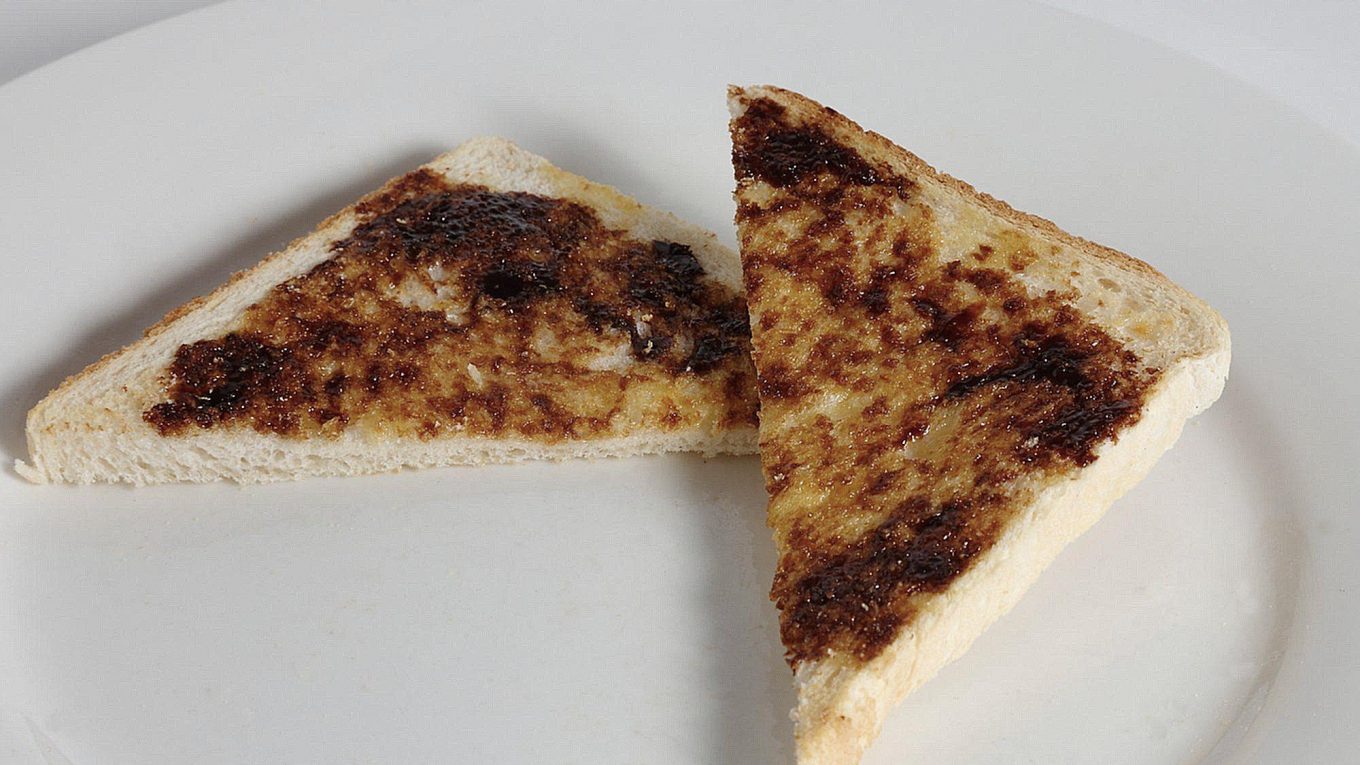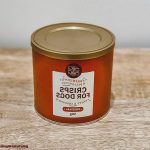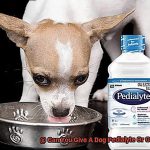Can You Feed Your Dog Vegemite On Toast?
As pet owners, we’re always on the lookout for fun ways to spoil our furry companions. And when it comes to breakfast treats, the thought of sharing a Vegemite-loaded toast with our dogs might cross our minds. But before you start spreading that savory Australian delight on your pup’s plate, let’s take a closer look at the potential risks and benefits.
In this blog post, we’ll embark on a flavorful journey exploring whether feeding your dog Vegemite on toast is a good idea. We’ll unravel the nutritional facts, consider important factors, and uncover any potential dangers along the way. So grab your cuppa and get ready to discover if this unique culinary adventure is something to bark about.
The Nutritional Benefits of Vegemite for Humans
Contents
If you’re a fan of Vegemite and have a furry friend by your side, you might be wondering if it’s safe to share this savory spread with them. While Vegemite can be enjoyed by humans, it is important to understand that dogs have different dietary needs and digestive systems than we do. So, let’s dig into the question: is it safe to feed dogs Vegemite on toast?
First, let’s talk about the nutritional benefits of Vegemite for humans. Vegemite is packed with B vitamins, including thiamine (B1), riboflavin (B2), niacin (B3), and folate (B9). These vitamins are essential for maintaining overall health and well-being. Thiamine helps with nerve function and energy production, riboflavin supports eye health and breaks down carbohydrates, proteins, and fats, niacin aids in digestion and promotes healthy skin, and folate is important for cell growth and development, especially during pregnancy. Vegemite also contains iron, which is necessary for transporting oxygen throughout the body and preventing anemia. Plus, it’s low in fat and cholesterol-free, making it a great choice for weight management and heart health.
But when it comes to our furry friends, things are a bit different. Dogs are primarily carnivorous animals with specific nutritional needs that are best met through a balanced diet formulated specifically for them. While some human foods can be safe in small amounts, it is generally not recommended to feed dogs Vegemite or any other human food on a regular basis.

There are a few reasons why Vegemite may not be suitable for dogs. Firstly, some ingredients commonly found in Vegemite, such as onion or garlic, can be toxic to dogs if consumed in large quantities. These ingredients can cause damage to their red blood cells and lead to anemia. Secondly, the high salt content in Vegemite can be harmful to dogs. Excessive sodium intake can lead to dehydration, electrolyte imbalances, and kidney problems in our furry friends.
So, what should you do if you’re looking for a treat or topping for your dog’s toast? It’s always best to consult with a veterinarian before introducing any new food into your dog’s diet. They can provide guidance on suitable and safe options that meet your dog’s individual dietary needs. There are many dog-friendly alternatives available that are specifically formulated to meet their nutritional requirements.
The Dangers of Feeding Vegemite to Dogs
Picture this – you’re enjoying your morning toast slathered with the iconic Australian spread, Vegemite. Your French Bulldog, with those adorable bat-like ears, sits next to you, giving you those irresistible puppy eyes. You can’t resist sharing a small taste of Vegemite with your furry friend. But is it really safe?
Let’s dig into the dangers of feeding Vegemite to dogs, especially our beloved French Bulldogs.
- Salt Overload: French Bulldogs have a lower tolerance for salt than humans. And guess what? Vegemite is loaded with sodium. Excessive salt intake can lead to dehydration, electrolyte imbalances, and even sodium poisoning in dogs. Yikes.
- The Xylitol Trap: Xylitol, a sugar substitute found in some brands of Vegemite, is highly toxic to dogs. It can cause a sudden drop in blood sugar levels, liver damage, and even seizures. Keep that jar of Vegemite away from your pup.
- Garlic and Onion Alert: Both garlic and onion powder are common ingredients in Vegemite. However, these ingredients can wreak havoc on a dog’s red blood cells, leading to anemia. Say no to garlic and onion for your French Bulldog.
Now, let’s break things down further:
|Dangers of Feeding Vegemite to Dogs |
|—————————————-|
|High Sodium Content |
|- Dehydration |
|- Electrolyte Imbalances |
|- Sodium Poisoning |
|Xylitol Toxicity |
|- Drop in Blood Sugar Levels |
|- Liver Damage |
|- Seizures |
|Garlic and Onion Toxicity |
|- Damage to Red Blood Cells |
|- Anemia |
To make matters worse, dogs with pre-existing health conditions like kidney disease or heart problems are even more susceptible to the dangers of Vegemite due to its high sodium content. Don’t gamble with your French Bulldog’s health.
Remember, even small amounts of Vegemite can be harmful to dogs. So, it’s best to keep the Vegemite jar out of reach and avoid sharing it with your furry friend altogether.
If your dog accidentally consumes Vegemite or shows any symptoms of illness after ingestion, don’t hesitate to seek immediate veterinary care. A veterinarian can induce vomiting or administer activated charcoal to prevent absorption of any toxins.
In conclusion, while Vegemite may be a beloved Australian staple for humans, it should never be fed to our adorable French Bulldogs. Its high sodium content, xylitol toxicity, and the presence of garlic and onion powder make it a recipe for disaster. Always consult with a veterinarian before introducing any new foods into your dog’s diet.
Common Ingredients in Vegemite That Are Harmful to Dogs
If you’re a proud owner of a French Bulldog, you probably want to share everything with your adorable companion, including your favorite foods. But when it comes to Vegemite, a popular Australian spread, you need to be cautious. While Vegemite may be a delicious treat for humans, it contains several ingredients that can be harmful to dogs. Let’s take a closer look at these ingredients and why they should be avoided.
- Onion powder: Onions contain a compound called thiosulphate, which can damage a dog’s red blood cells and lead to hemolytic anemia. Even small amounts of onion powder can be toxic to dogs. Symptoms of onion toxicity include weakness, vomiting, and pale gums. It is crucial to keep any food containing onion powder away from your furry friend.
- Garlic powder: Like onions, garlic also contains thiosulphate, which can cause hemolytic anemia in dogs. Additionally, garlic can cause gastrointestinal upset and damage the digestive system if consumed in large quantities. It’s best to steer clear of any food that contains garlic powder when it comes to your French Bulldog’s diet.
- Excessive salt: Salt is an essential nutrient for dogs, but excessive salt intake can lead to dehydration, electrolyte imbalances, and sodium poisoning. Vegemite contains high levels of salt, so it’s not recommended for your furry friend, especially if they have existing health conditions like heart or kidney problems.
- Yeast extract: While small amounts of yeast extract are generally safe for dogs, consuming large quantities can cause gastrointestinal upset such as bloating, gas, and diarrhea. In severe cases, excessive yeast consumption can even lead to alcohol poisoning due to fermentation in the digestive system.
- Additives and preservatives: Vegemite often contains additives and preservatives such as flavor enhancers and food colorings. While these additives may not be directly harmful to dogs, they can cause digestive issues and allergic reactions in some individuals. Opting for natural, unprocessed foods is always the best choice for your furry friend.
How Much Salt Is Too Much for a Dog?
One aspect of their well-being that often goes overlooked is their salt intake. While salt is essential for dogs in moderation, too much of it can lead to various health issues. In this article, we will explore how much salt is too much for your French Bulldog and what signs to look out for if they have consumed excess salt.
Understanding the Recommended Daily Intake:
Dogs have a lower tolerance for salt compared to humans. The recommended daily intake of salt for dogs is approximately 100 mg per pound of body weight. However, this amount can vary depending on factors such as size, age, and overall health.
The Dangers of Excessive Salt Consumption:
Consuming too much salt can lead to dehydration, increased thirst, kidney damage, and electrolyte imbalances in dogs. It’s important to note that many commercial dog foods already contain a certain amount of salt. Therefore, considering the cumulative intake is crucial when adding additional salty foods like Vegemite on toast.
Vegemite on Toast and Your French Bulldog:
While Vegemite on toast may be a delicious treat for humans, it contains a significant amount of salt. Just one teaspoon of Vegemite has approximately 230 mg of sodium, which can be quite high for a dog’s daily salt intake.
Monitoring Your French Bulldog’s Salt Intake:
If you want to give your French Bulldog a small taste of Vegemite on toast as an occasional treat, it’s important to keep the portion size minimal and monitor their reaction closely. Signs of excessive salt consumption in dogs include increased thirst, excessive urination, vomiting, diarrhea, lethargy, and in severe cases, seizures or coma.
Seeking Veterinary Guidance:
If you suspect that your French Bulldog has ingested too much salt or is exhibiting any concerning symptoms, it’s crucial to contact your veterinarian immediately. They will provide guidance and potential treatment to ensure your furry friend’s well-being.
Alternatives to Vegemite for Dogs
Looking to spice up your French Bulldog’s breakfast routine? While Vegemite may be off-limits for our four-legged friends due to its high salt content, there are plenty of safe and healthy alternatives that will have your pup drooling with delight.
In this blog post, we’ll explore some delicious alternatives that are both tasty and nutritious for your furry friend.
Let’s dive in.
Peanut Butter: A Pup’s Favorite
Peanut butter is a classic treat that most dogs go crazy for. Not only is it delicious, but it also provides essential healthy fats, protein, and vitamins. When choosing peanut butter for your Frenchie, make sure to opt for the all-natural variety without added sugars or artificial sweeteners.
Mashed Banana: A Sweet Delight
If your French Bulldog has a sweet tooth, mashed banana is a fantastic alternative to Vegemite. Not only does it add natural sweetness to toast, but it’s also packed with potassium and vitamin C, promoting a healthy immune system and heart function.
Cottage Cheese: Creamy and Nutritious
Cottage cheese is an excellent source of protein for dogs and low in lactose compared to other dairy products. Spread a dollop of cottage cheese on your pup’s toast for a creamy and nutritious treat. You can even mix in cooked vegetables or fruits for added variety.
Unsalted Chicken or Beef Broth: A Savory Twist
For those craving something savory, unsalted chicken or beef broth can be drizzled over toast or used as a dip. It adds a burst of flavor without the harmful salt content found in Vegemite. Just ensure the broth doesn’t contain any added seasonings that might be harmful to your Frenchie.
Cooked Chicken or Turkey: Crunchy and Protein-packed
If your French Bulldog enjoys a little crunch, top their toast with small pieces of cooked, boneless chicken or turkey. These lean meats provide a great source of protein and can add some exciting texture to their meal. Remember to avoid any seasonings or additives that may be harmful to dogs.
Tips for Introducing New Foods into Your Dog’s Diet
Introducing new foods into your French Bulldog’s diet can be an exciting and beneficial experience, but it’s important to do it safely and gradually. As a responsible dog owner, you want to ensure that your furry friend stays healthy and doesn’t experience any digestive issues or adverse reactions. In this article, we will provide you with some essential tips to help you introduce new foods into your French Bulldog’s diet successfully.
Start with small portions:
When introducing a new food to your French Bulldog, it’s best to start with small portions. This allows you to monitor their reaction and ensure they tolerate the new food well. Begin by offering just a small taste or a tiny piece of the new food and observe how your dog reacts to it. If there are no negative reactions, you can gradually increase the amount over time.
Gradually increase the amount:
Once you have established that your French Bulldog tolerates the new food without any adverse reactions, you can gradually increase the amount. Slowly incorporate it into their meals, mixing it with their regular food. This gradual approach helps your French Bulldog adjust to the new taste and texture without overwhelming their sensitive digestive system.
Monitor for any adverse reactions:
As you introduce new foods into your French Bulldog’s diet, it is essential to monitor them for any adverse reactions. Watch out for signs of allergies or digestive issues such as itching, vomiting, diarrhea, or excessive gas. If you notice any of these symptoms, stop feeding the new food immediately and consult your veterinarian.
Consider the nutritional value:
Before introducing a new food, it is important to consider its nutritional value. Ensure that the new food provides essential nutrients that support your French Bulldog’s overall health. Consult with your veterinarian or a canine nutritionist to determine if the new food is appropriate for your French Bulldog’s specific dietary needs.
Be patient and persistent:
Some French Bulldogs may be hesitant to try new foods, especially if they have been eating the same diet for a long time. Be patient and persistent in your efforts to introduce new foods. Offer small portions consistently and try different methods of presentation, such as mixing the new food with something they already enjoy. Remember, it may take several attempts before your French Bulldog fully accepts and enjoys the new addition to their diet.
Conclusion
In conclusion, Vegemite may be a beloved Aussie favorite for us humans, but it’s a big no-no for our adorable French Bulldogs. Its high sodium levels, xylitol toxicity, and the inclusion of garlic and onion powder create a recipe for disaster. Before adding any new foods to your pup’s diet, it’s crucial to consult with a veterinarian.
Fortunately, there are plenty of safe and healthy alternatives that will make your furry friend drool with delight. Peanut butter is a classic treat that dogs go crazy for, packed with essential healthy fats, protein, and vitamins.
Mashed banana adds natural sweetness to toast while providing potassium and vitamin C in abundance. Cottage cheese is an excellent source of protein and can be mixed with cooked veggies or fruits for added variety. Unsalted chicken or beef broth adds a burst of flavor without harmful salt content. And let’s not forget about those crunchy pieces of cooked chicken or turkey that provide both texture and protein.
When introducing new foods into your dog’s diet, take it slow. Start with small portions and gradually increase over time. Keep an eye out for any adverse reactions and consider the nutritional value of each food choice. Remember to be patient and persistent in your efforts.
Always prioritize the health of your French Bulldog by providing them with a balanced diet formulated specifically for their needs.




